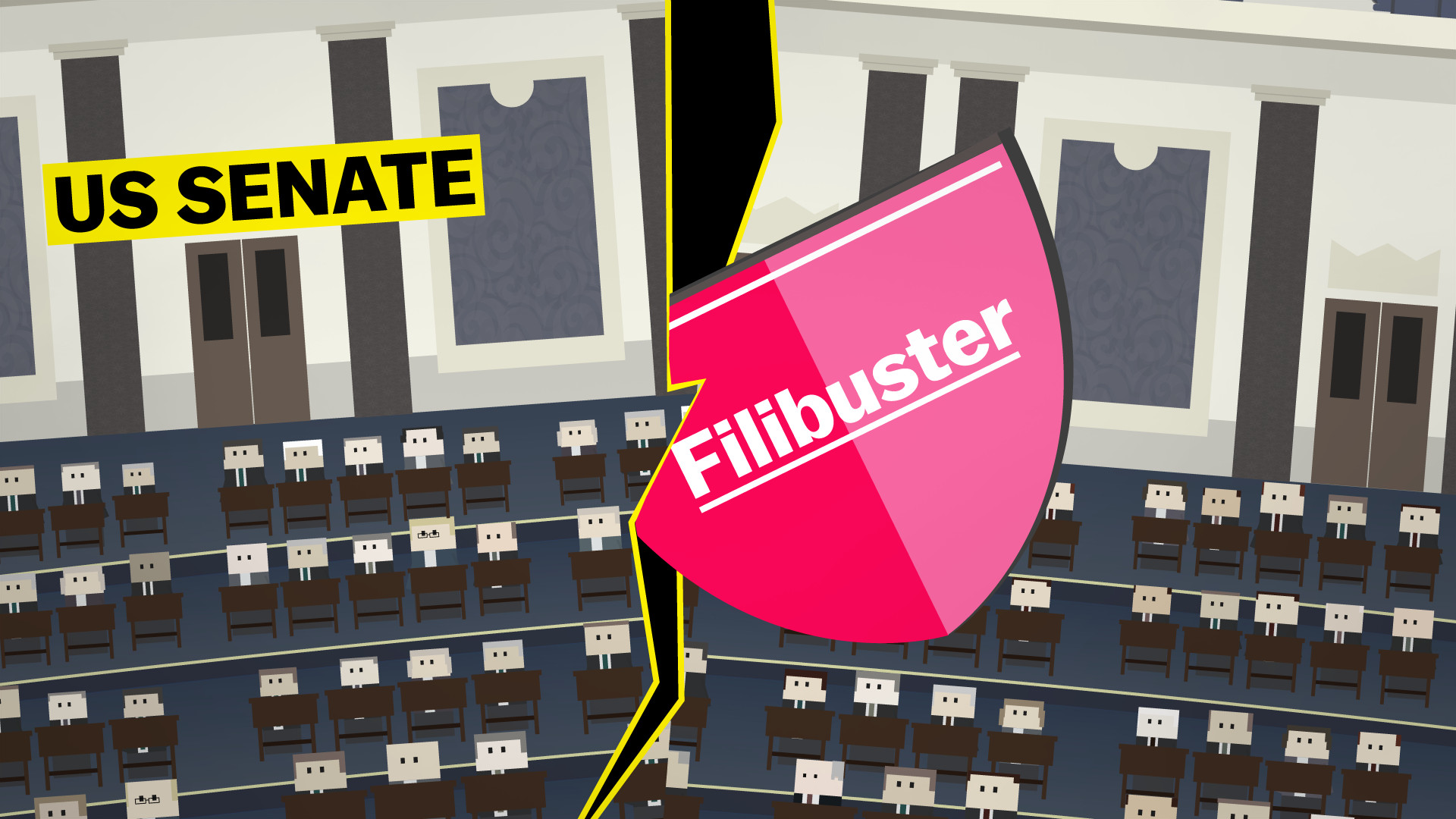In recent weeks, the filibuster has been the subject of vitriol from both Democratic members of Congress and the American public. On May 28, Senate Republicans used the filibuster rule to block a commission into the January 6 insurrection. Less than four weeks later on June 22, Republicans used the filibuster to block the For the People Act, a progressive voting rights bill that would have countered the increased voter suppression bills being passed on a state level. In response, many are calling for the abolition of the filibuster, which is now coming to be viewed as a method to undermine democracy in the United States. While controversy around the rule has gained national attention, mainstream news coverage is leaving one major issue with the filibuster: its ties to white supremacy.
An Undemocratic Practice
Currently, Democrats hold a razor-thin Senate majority. A simple majority of 51 votes would ordinarily be enough to pass legislation in the Senate, so with control of the House, Senate, and Presidency, Democrats could theoretically pass any bill they wanted. However, the filibuster rule makes things more complicated. Simply put, in order to vote on a piece of legislation, 60 people need to agree to even have the vote. This means the minority party (in this case, Republicans) can torpedo anything that appears on the Senate floor.
The ability for just 41 people to entirely block a bill is even more broken than it sounds. Senate Democrats represent over 40 million more Americans than Republicans. This betrays a major gap in representation. With such immense power to block meaningful legislation despite such little public support, a minority of Republican senators can effectively override the will of the voters.
Truly this practice is indicative of something broken within the American government. If the party that received less votes controls the Senate, what does that mean for democracy?
A Racist History
One of the prime criticisms of the filibuster is its historical usage. More than a cumbersome obstruction of democracy, the rule also provides a tool for white supremacy – Republicans have historically used it to thwart progressive agendas. The once-obscure senate procedure went largely unused until the 1950s when its use dramatically increased, mostly in attempts to block or hinder civil rights legislation. In this respect, the parallels between the 1950s and the present day are obvious. The For the People Act, a bill that would have expanded voting rights – mostly to Black communities – was filibustered out of existence by every Republican in the Senate.
A study by the Center for American Progress found that Senate Republicans employ the filibuster twice as much as their Democratic counterparts. After former president Trump’s reign it is safe to say that . Employing what many now consider to be an arcane and overused tool of obstruction, Republicans continue to impede the rights of Black people and further their agenda, against the will of the majority of American people.
A Gap in Corporate Coverage
Since the death of the For the People Act, the topic of filibuster abolition has gotten significant attention in the mainstream media. Recently, mainstream news outlets such as NBC have invited members of congress to give their opinions on the filibuster, leading to Democrats such as Alexandria Ocasio-Cortez expressing support for its abolition or reform. However, despite Republicans most recently destroying a bill that would have primarily benefitted Black Americans, discussion of the racist history of the filibuster is lacking from corporate news media’s broadcast coverage. Independent news sources are left to acknowledge the filibuster’s roots and the Republican party’s perpetuation of white supremacist ideals.
The filibuster’s history of preserving white supremacy must be reported alongside its obvious obstructions to democracy. Given the limited reach of independent news outlets, the American public’s understanding of the brokenness of its government must come from mainstream media that reports on the whole story. Mainstream media must educate the public on the relationship between the implementation of the filibuster and white supremacist ideals, lest the cycle of minority rule continue.
Image by Vox/Alvin Chang

